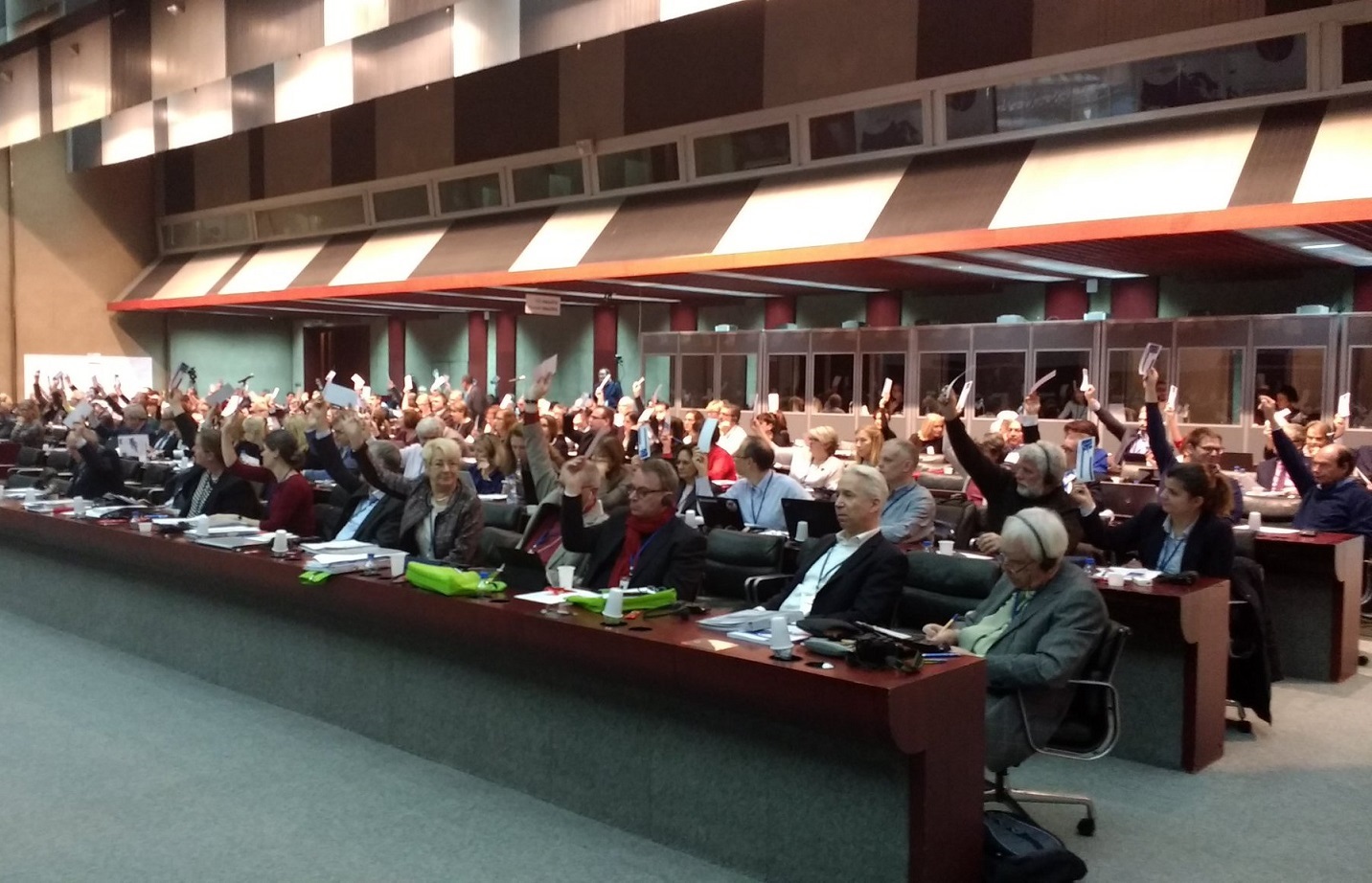2016 ETUCE Conference - Day 1
Published:
President Christine Blower opened the quadrennial conference of the ETUCE, the European region of Education International, in the Sava Centre, Belgrade. A welcome speech was given by the Serbian Minister of Education who stressed the need for enhancing the status and attractiveness of the teaching profession and securing investment to underpin quality education provision.
A welcome was also provided by the Serbian teachers’ unions who outlined their commitment to EU accession, the pursuit of quality and a readiness to change and adapt, provided they were included in the process and obtained appropriate investment and status.
EI President Susan Hopgood welcomed delegates and spoke of some major global challenges including the priority given to the interests of corporations, the rise of extremism and the erosion of civic rights. She said that teaching has a moral purpose and is as much to do with the promotion of shared values as knowledge and skill transfer. She stressed that teachers had a key role to play in meeting global challenges, but must never be viewed as a commodity in a trade agreement and should firmly be rooted as a public service.
Greetings were conveyed by Montserrat Mir Roca, ETUC Confederal Secretary who highlighted negative trends in Europe such as declining wages and loss of bargaining rights. Pay rises are urgently needed to stimulate economies and increase demand for goods and services. More attention needs to be paid to the European social model and to focus on a Europe for its citizens.
A supportive video message was received from EU Commissioner Navracsics. He advocated better social dialogue and enhanced status and attractiveness of the teaching profession.
The President introduced the conference theme and associated resolution with its 12 action points which, with minor amendment was adopted.
Outgoing European Director, Martin Roemer, introduced the 160 page long Activity Report 2012-2016. He reflected on “4 difficult and turbulent years”, citing a litany of events and trends which had occurred and posed serious challenges. He warned that the economic crisis is far from over with an ongoing agenda of cuts and privatisation. While the expectations on education were growing investment in teachers was not commensurate. He also stressed the pressures on social dialogue suffering reduced funding. That said, he reported work on 23 projects, over 80 governance meetings and 48 conferences and seminars.
Director Designate, Susan Flocken, gave a wide ranging speech introducing the work plan for the coming quadrennium. She called for a commitment to education as a public good and for active citizenship. She emphasised the need for responsible youth in these turbulent times and railed against the maltreatment of migrants. She sharply criticised the attacks on human rights and freedom of speech in Turkey. Workers now felt left behind and were ready to vote for any kind of change, hence support for extremists. Unions need to provide answers for the excluded and that calls for more and better social dialogue and collective bargaining. She called for unions to stand together as a beacon for hope in such difficult times.
The conference proceeded to adopt a major policy paper on ICT in education with 53 recommendations. Speakers stressed the need for teachers to determine the use of ICT and not be driven by it. There is a risk that others will drive the ICT agenda for commercial reasons unless teachers assert their autonomy.
Strong views were expressed in discussions around two resolutions on the refugee situation in Europe. Speakers criticised the defensive, inadequate and sometimes racist treatment of refugees by politicians and governments. Support was expressed for the rights of children whatever their background and the need to confront racist attitudes within and outwith education establishments. Schools are seen as the key to integration and a safe haven for children affected by conflict.
Finally, conference was briefed on a major structural review being conducted by EI and now the subject of consultation among member organisations. Also some minor tidying amendments to the by laws were adopted.
The president, Christine Blower, was re-elected unopposed for a further 4 year term. She expressed her gratitude for the support given to her over the last term and looked forward to constructive work with all involved for the coming period.